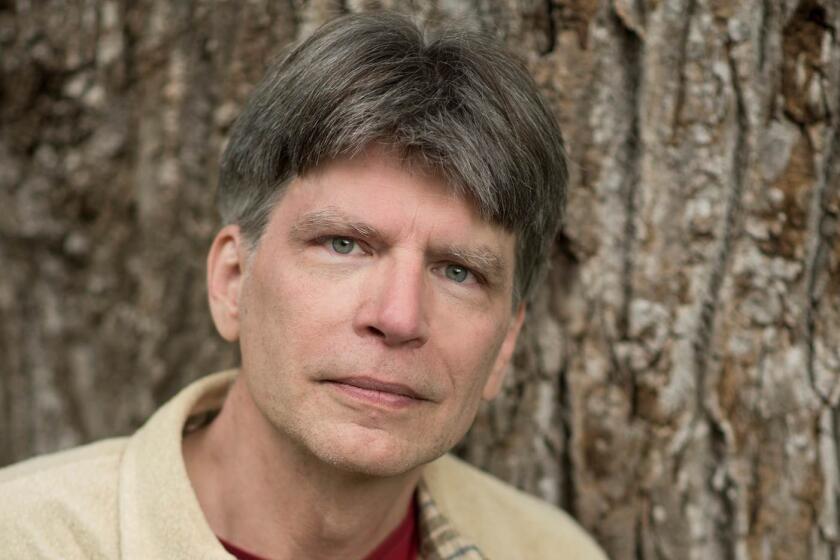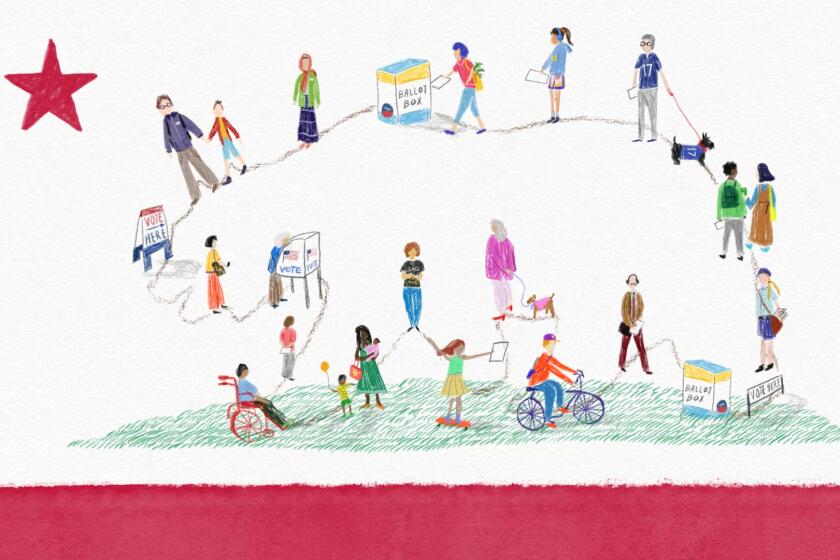Column: Questions for tonight’s debate
When Donald Trump and Hillary Clinton meet for their second debate on Sunday evening, the moderators, CNN’s Anderson Cooper and ABC’s Martha Raddatz, will undoubtedly tackle the campaign’s newest firestorm head-on. One of the first questions will be: Should a man who brags that he has forced himself on women be disqualified from the presidency?
But Trump’s abusive behavior and his assertion that Clinton is equally culpable aren’t the only issues the debate should cover. Voters also need the answer to an even bigger question: How would the candidates govern if they won? How would President Clinton or President Trump overcome the bitter polarization that has crippled the federal government? What can they tell us about their personal histories that suggests they can do the job well?
“The best debate questions will do several things,” Kathleen Hall Jamieson of the University of Pennsylvania’s Annenberg Public Policy Center told me last week. (She’s been studying debates for decades.) “They’ll clearly identify significant differences or similarities between the candidates on consequential issues. But they’ll also give you a better look at the candidates’ temperaments and habits of mind. Let the candidates talk through the way they think about choices. Don’t just ask about issues; push them to explain how the issues translate into governance.”
It’s easy for candidates to propose wish lists; the hard part comes when presidents have to decide which priorities to cast aside.
As an example, she cited a question PBS’ Jim Lehrer asked in 2008: “What are you going to have to give up?” It’s easy for candidates to propose wish lists; presidents have to decide which priorities to cast aside.
Here, thanks partly to Jamieson and others, is a short list of questions the moderators should ask after they cover Trump’s behavior toward women.
First, on fixing the broken political system:
No matter who wins, the next president won’t get much done without cooperation from the other party. If you’re elected, what specific steps will you take to break through the partisan gridlock that has paralyzed Washington? (Warning to candidates: a general promise to “reach across the aisle” won’t be enough.)
Is there anything your party has done over the last eight years that has contributed to the problem? Anything you’d try to change on your side?
What’s the most important policy on which you and your opponent agree? If you are not elected, will you help the next president achieve that common goal?
What would you say tonight to your opponent’s most fervent supporters — the “deplorables” who back Trump, the “Never Trump” voters who back Clinton?
You’ve called your opponent some pretty tough things: “crooked” in one case, “racist” in the other. Is there anything you admire about your opponent? Why?
The moderators should also ask some questions about temperament — because, as every student of the presidency knows, it matters a lot:
The two of you share a dubious distinction: You’re the two least-admired presidential candidates in modern history. It’s not only partisan critics who feel that way; a lot of voters in the middle simply don’t trust you. What have they failed to understand about your character?
You’ve both managed big enterprises — one in private business, the other in government. What are the three top management lessons you’ve learned? How would you apply them in specific ways to the presidency?
You’ve both changed your mind on major issues. (For Clinton, the Trans Pacific Partnership trade agreement; for Trump, your proposal to ban all Muslims from entering the United States.) Tell us about times you have changed your mind; what made you change course?
Tell us about something you tried to do that was a failure. What did you learn from that?
Finally, a question from conservative Steve Deace’s blog: Like many Americans, each of you has struggled in your married life. What did you learn from those experiences? Did those trials change the way you deal with people today?
Other issues deserve time in the remaining debates as well: education, climate change, gun control and healthcare, including mental health.
Half of the questions in tonight’s debate will be asked by ordinary voters in a “town hall” format. That’s a good thing. Voters often ask better questions than journalists. Most important, when a voter asks a question, the candidates feel more pressure to answer it. They can’t duck as easily as when they’re dealing with reporters.
The test of tonight’s debate won’t be whether it produces as much noise and heat as the first debate two weeks ago. It’s whether it produces new light. We’ve been watching these two candidates run for more than a year. Can they still show us something new?
Twitter: @doylemcmanus
Follow the Opinion section on Twitter @latimesopinion and Facebook
More to Read
A cure for the common opinion
Get thought-provoking perspectives with our weekly newsletter.
You may occasionally receive promotional content from the Los Angeles Times.











